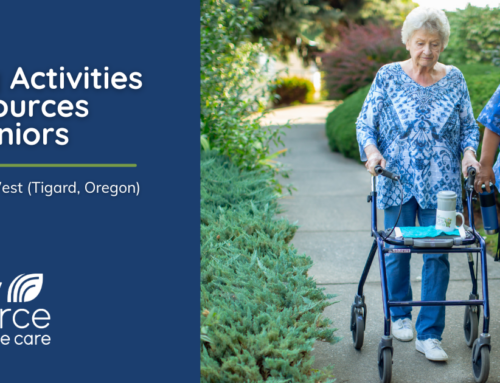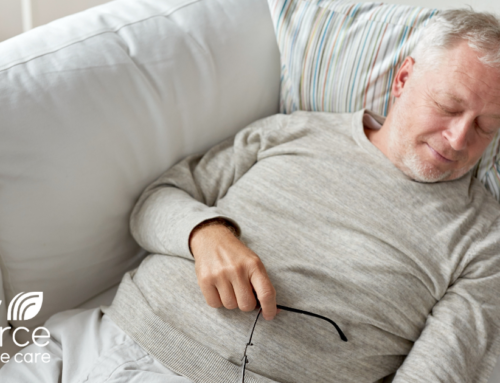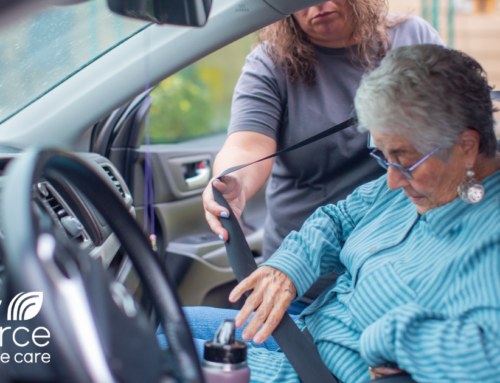Each year, millions of Americans aged 65+ experience a dangerous fall. According to statistics compiled by the CDC, although one in four older adults falls annually, less than half inform their doctor about the accident. To make matters even worse, falling once doubles a senior’s risk for falling again. A fear of falling also keeps many independent seniors from getting the physical activity they need.
If you are currently looking after an aging loved one, having a good fall prevention strategy should be at the top of your “to-do” list.
Fall Statistics in the Elderly
Over three million aging Americans- or roughly one every 11 seconds- are treated in emergency departments and urgent care centers every year for fall-related injuries. Over 800,000 of those seniors are hospitalized, and some lose their independence as a result.
Here are more sobering statistics about senior falls:
- One-in-five falls cause serious injuries like head trauma or broken bones.
- Falls are the leading cause of traumatic brain injuries.
- At the current rate, by 2030, there will be seven deaths every hour due to falls.
- In 2015 alone, Medicare and Medicaid paid out $37 billion in claims for fall-related incidents.
Why Older Adults Are More Fall-Prone
These age-related conditions and risk factors increase one’s risk for falling:
- Vision loss
- Poor balance and coordination
- Lower body weakness
- Foot pain or inadequate footwear
- Vitamin D deficiency
- Dementia and Alzheimer’s
- Certain medications that affect balance and coordination
- Tripping hazards around the home
Fall-Prevention Tips for Seniors
Keeping your aging loved one safe starts with these steps:
Offer your assistance
Respectfully share your concerns with your loved one and offer to help. If they are hesitant to accept assistance, show them some fall statistics and discuss specific examples of seniors they know who were injured in falls. Once you have their approval, it’ll be time to proceed.
Encourage exercise
Because regular exercise improves balance, coordination, and lower body strength, encourage your loved one to participate in low-impact forms of exercise like Yoga, walking, or cycling. Workouts like swimming or water aerobics provide the same health benefits without placing additional stress on achy joints for someone with limited mobility.
Get their balance tested
Holding onto walls or furniture to get around could indicate that your loved one’s balance and coordination are off. Take them to the doctor or physical therapist so that they can conduct a Fall Risk Assessment. Based on the results, discuss with the healthcare professional specific ways that you can help. If needed, find them a walker or cane to help support their weight.
Modify their home
Ways to make the home environment safer include:
- Bathroom – Install grab bars in the bathing area and near the toilet. Place non-skid strips in the tub and remove slippery throw rugs from the room. Make sure the bathroom has adequate lighting and, if needed, get a shower seat and hand-held shower nozzle.
- Trip hazards – Eliminate trip and fall hazards around the home, like small furniture, electrical cords, and area rugs.
- Stairways – Attach secure railings on both sides of the stairs and make sure that the steps are well lit. If your loved one suffers from poor vision, place fluorescent strips on the front of each step.
Schedule an eye exam
If your senior squints a lot while watching TV or driving, take them to the eye doctor for an examination. Sometimes a new pair of eyeglasses goes a long way in preventing falls. If they have bifocal lenses make sure they know how to use them safely while negotiating stairs. If your loved one’s lenses get darker when exposed to sunlight, they should wait until they change back to clear again before resuming normal activities once they’ve gone back inside.
We Take Senior Fall Prevention Very Seriously
At Family Resource Home Care, we proudly serve many communities throughout the Pacific Northwest. Our local caregiver teams share a commitment to enhancing their neighbors’ quality of life while supporting clients and families with personalized in-home care solutions. With an added emphasis on fall prevention, our senior services include personal care, meal preparation, errands and transportation, light housekeeping, companion care, live-in care, and dementia and Alzheimer’s care.
Our trained client care supervisors and caregivers offer close supervision while in the home for your peace of mind. At Family Resource, we are here for you! To learn more about our affordable home care services now, or request a FREE consultation for a senior in our service area today, please visit Family Resource Home Care at: www.familyresourcehomecare.com or call 800.775.6380.






